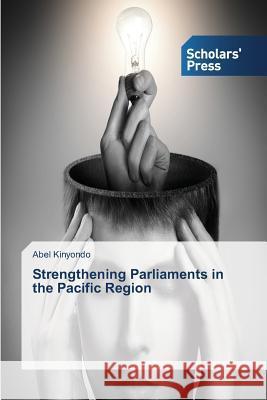Strengthening Parliaments in the Pacific Region » książka
Strengthening Parliaments in the Pacific Region
ISBN-13: 9783639669923 / Angielski / Miękka / 2014 / 328 str.
This book reports an investigation of the relationship between training and parliamentary performance in the Pacific region. It innovatively draws on the theories from political science, adult education and training and human resources fields in an attempt to explain that relationship. Attention is drawn on those who fund, develop and conduct education and training programs for members of parliament. Subsequently, the value or otherwise of using external, fly-in-fly-out training providers from other cultural and political systems is identified and evaluated. The role of International Organizations in funding, developing and evaluating parliamentarians' education and training programs and the resources spent on consultants is also examined. Furthermore, the role of parliamentary staff in assisting MPs to enhance their knowledge, skills and abilities is scrutinized including structural and other challenges they would face if they were to play a more significant role. The book concludes by offering suggestions on how education and training programs for MPs, and by extension the performance of parliaments, could be improved.
This book reports an investigation of the relationship between training and parliamentary performance in the Pacific region. It innovatively draws on the theories from political science, adult education and training and human resources fields in an attempt to explain that relationship. Attention is drawn on those who fund, develop and conduct education and training programs for members of parliament. Subsequently, the value or otherwise of using external, fly-in-fly-out training providers from other cultural and political systems is identified and evaluated. The role of International Organizations in funding, developing and evaluating parliamentarians education and training programs and the resources spent on consultants is also examined. Furthermore, the role of parliamentary staff in assisting MPs to enhance their knowledge, skills and abilities is scrutinized including structural and other challenges they would face if they were to play a more significant role. The book concludes by offering suggestions on how education and training programs for MPs, and by extension the performance of parliaments, could be improved.











